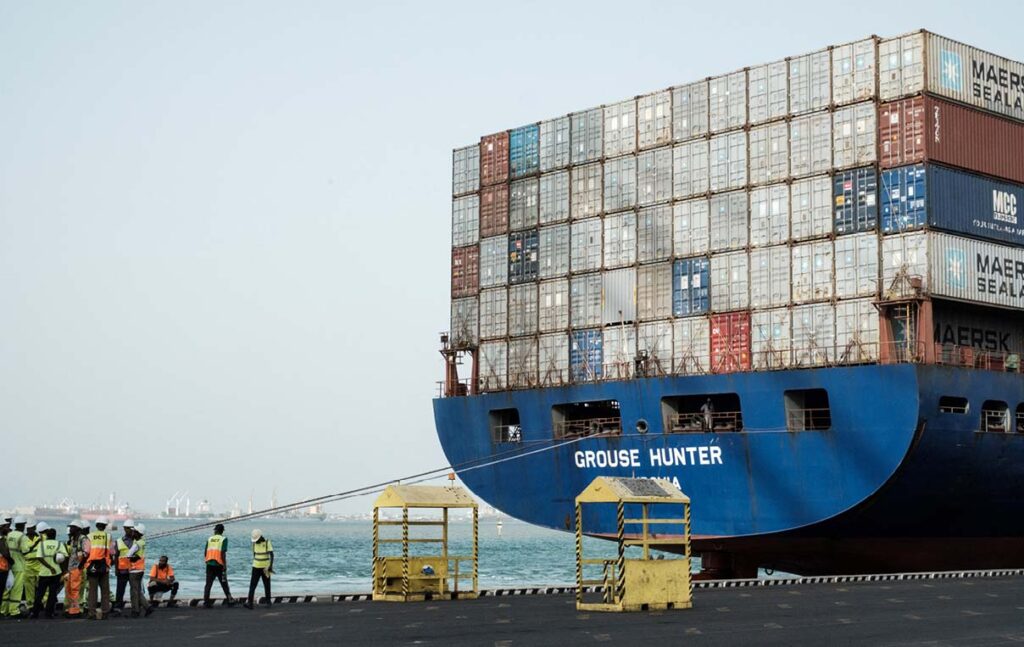Africa’s blue economy has emerged as a strategic frontier for economic development and a vital arena for geopolitical manoeuvring. With coastal waters spanning around 13 million km2, including vast exclusive economic zones (EEZs), Africa possesses extensive resources that are highly attractive to global powers.
More than 90% of Africa’s trade flows through these waters, which include some of the world’s most strategically significant maritime chokepoints. This makes the continent’s blue economy a focal point for international investment, resource competition, and security interests. Consequently, Africa’s blue economy is increasingly becoming a testing ground for innovative diplomacy as African nations work to leverage foreign interests while safeguarding their autonomy over these critical assets.
The renewed international focus on Africa’s blue economy stems from three main drivers: maritime security, energy resource extraction, and sustainable development opportunities. This has created a pressing need for African countries to adopt sophisticated diplomatic approaches across economic, environmental, and geopolitical domains to ensure that the continent can benefit from the complex web of global interests in its blue economy.
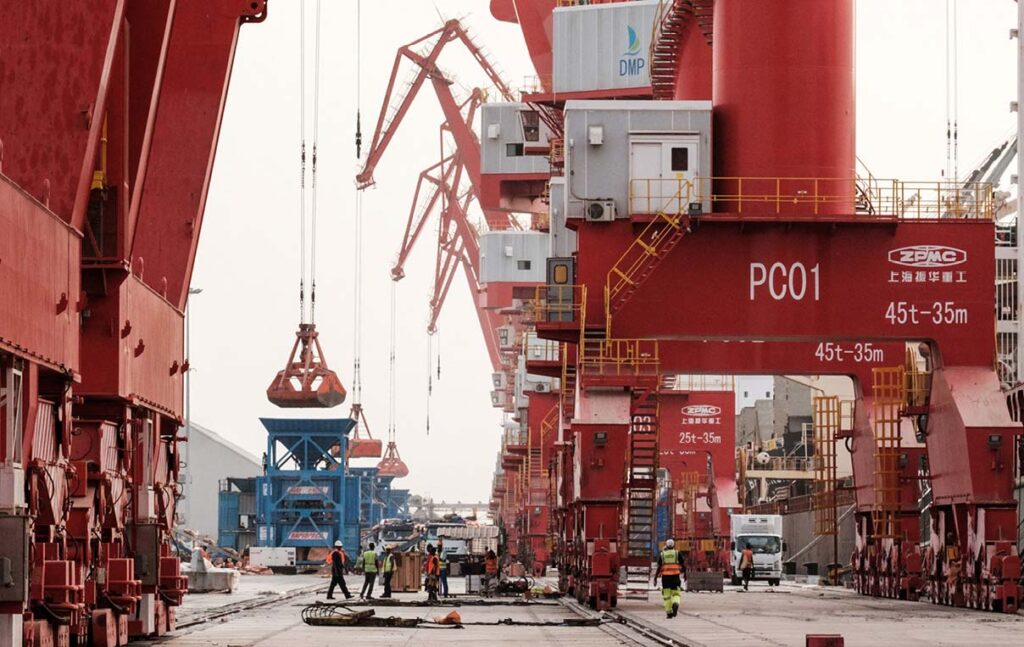
Africa’s strategic maritime zones have attracted substantial foreign investment, particularly in port development, energy projects, and infrastructure modernisation. Gulf nations like the UAE and Saudi Arabia have increasingly invested in East African ports like Berbera in Somaliland and Doraleh in Djibouti. These investments create new trade opportunities and also raise questions about control over vital infrastructure. Gulf nations pursue these investments to secure supply routes and gain access to Africa’s abundant resources. This influx of foreign investment underscores the importance of robust economic diplomacy to help African nations secure beneficial terms and avoid economic dependence.
Mauritius offers a compelling example of how Africa manages this balance of foreign interests. Strategically located in the Indian Ocean, Mauritius has adeptly navigated tensions between China and India – two major powers vying for influence in the region. By maintaining positive relations with both nations while avoiding overreliance on either, Mauritius exemplifies a careful diplomatic balancing act that allows it to retain control over its blue economy while capitalising on economic opportunities from both countries.
Similarly, Ghana and Senegal have introduced local content policies in their energy sectors, requiring foreign corporations to invest in local infrastructure and workforce development. This ensures that revenue from blue economy resources supports broader economic growth. As Abhishek Mishra from the Manohar Parrikar Institute for Defence Studies notes, achieving this balance will require coherent, structured frameworks like the AU’s Agenda 2063 and the Lomé Charter, which emphasise resource utilisation without sacrificing ecosystem health.
David Willima, a maritime analyst from the Institute of Security Studies, adds that financing for Africa’s blue economy remains a major gap. “Despite the ocean being our biggest climate ally by acting as a carbon sink, SDG 14 remains the least-funded development goal, with only 3% of global climate finance dedicated to ocean-based initiatives. To unlock the full economic and climate potential of the blue economy, increased investment is essential.”
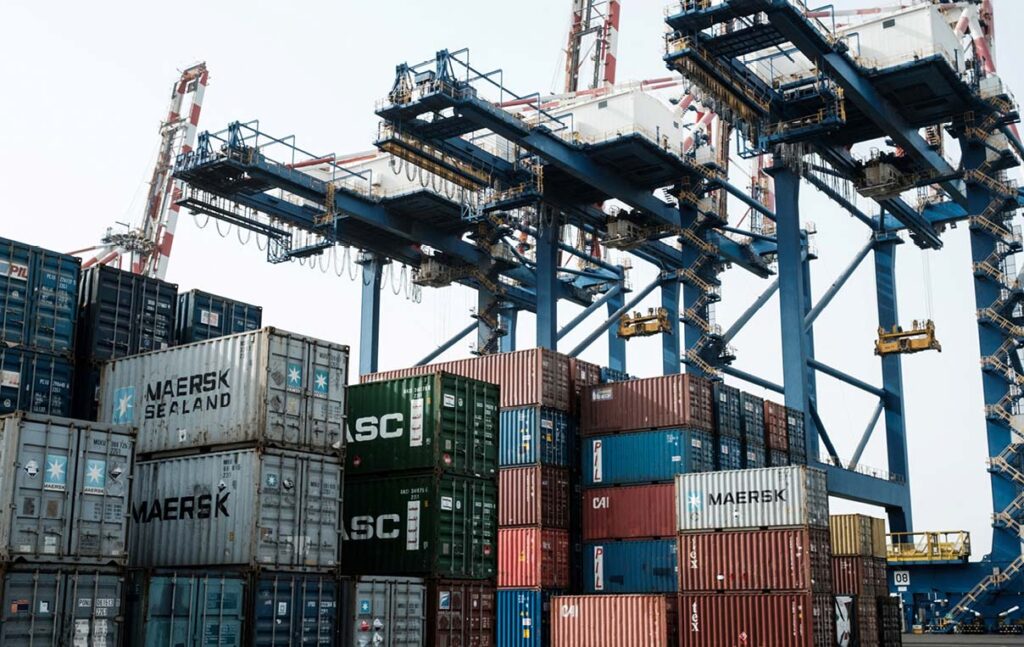
Africa’s blue economy holds vast potential for sustainable development in fisheries, aquaculture, and marine biotechnology. However, overfishing, climate change, and marine pollution threats have made environmental diplomacy essential for preserving these resources and promoting sustainable growth. West Africa, for instance, loses an estimated $2.3 billion annually due to illegal, unregulated, and unreported (IUU) fishing, much of it conducted by foreign fleets. This challenge pushes African countries to seek international cooperation to protect their marine resources, secure regulatory funding, and build resilience to climate impacts.
Countries like the Seychelles and Mozambique have led efforts to advocate for stronger global commitments to marine conservation and climate resilience. Seychelles pioneered the “blue bond” concept – a financial tool directing investments towards sustainable fisheries while addressing its national debt. This innovative approach is a model for other African countries looking to finance conservation efforts within the blue economy. Africa’s regional climate coalition, the African Group of Negotiators on Climate Change, has also provided a unified voice in global climate forums, advocating for funding and policies to benefit maritime communities and preserve biodiversity. This aligns with Africa’s blue economy goals by ensuring sustainable management of ocean resources, directly benefiting local populations while addressing global environmental priorities.
According to Amit Jain, Director of the NTU-SBF Centre for African Studies, Africa’s coastal nations could significantly benefit by developing more cohesive blue economy strategies. “With the exception of South Africa, Seychelles, and Mauritius, few African states have articulated clear blue economy strategies, which is a missed opportunity,” he explains. “Africa’s extensive coastline and dependence on marine resources make the blue economy crucial for food security, livelihoods, and climate resilience. Harnessed sustainably, the blue economy could act as a force multiplier for development and a buffer against climate change.”
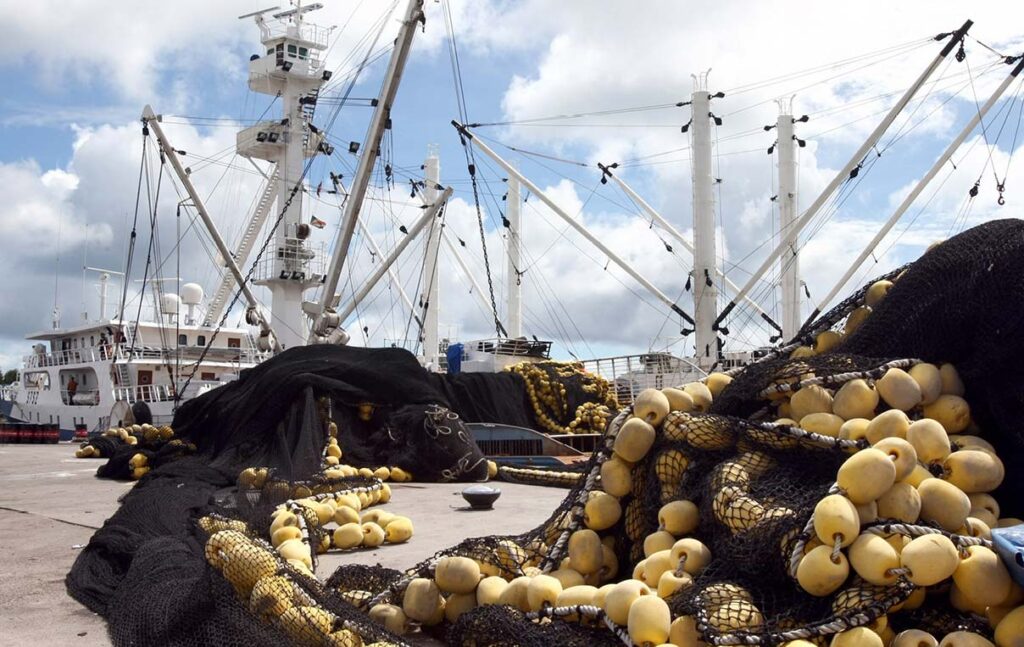
Africa’s maritime domain is also a stage for intense geopolitical competition, especially concerning security, migration, and the strategic positioning of military assets. The Gulf of Guinea, notorious for piracy, remains one of the most dangerous areas for commercial shipping, incurring significant security costs and threatening blue economy growth. African nations, through initiatives like the African Union’s African Integrated Maritime Strategy (AIMS) and the Djibouti Code of Conduct, have bolstered regional cooperation to address these security threats and assert control over their waters.
Since the COVID-19 pandemic, global supply chain disruptions have underscored the strategic significance of Africa’s energy routes and chokepoints. The Red Sea, for example, has seen increased instability, amplifying Africa’s role in energy geopolitics. Djibouti’s success in managing its geopolitical positioning is a testament to the complex but potentially beneficial nature of these engagements.
Located at the mouth of the Red Sea and the Bab-el-Mandeb Strait, Djibouti hosts multiple foreign naval bases from countries including the United States, China, and France. This arrangement allows Djibouti to benefit economically from foreign bases while maintaining sovereignty, demonstrating the advantages of adept geopolitical diplomacy.
The migration crisis across the Mediterranean further underscores the geopolitical stakes in Africa’s blue economy. Coastal nations in North Africa have engaged in diplomacy with European counterparts to address migration challenges, negotiating agreements on border management and anti-trafficking efforts. These dialogues highlight the complex interplay between security needs, economic conditions, and the livelihoods that Africa’s blue economy supports.
Abhishek Mishra emphasises that to maximise benefits, Africa must integrate its fragmented diplomatic efforts into a more cohesive approach. He suggests that African policymakers focus on inclusive, sustainable governance frameworks that prioritise social equity and ecological conservation alongside economic outcomes. “Policymakers need to make Africa’s blue economy people-centric,” he advises, adding that a balanced approach rooted in local community needs is crucial for long-term success.
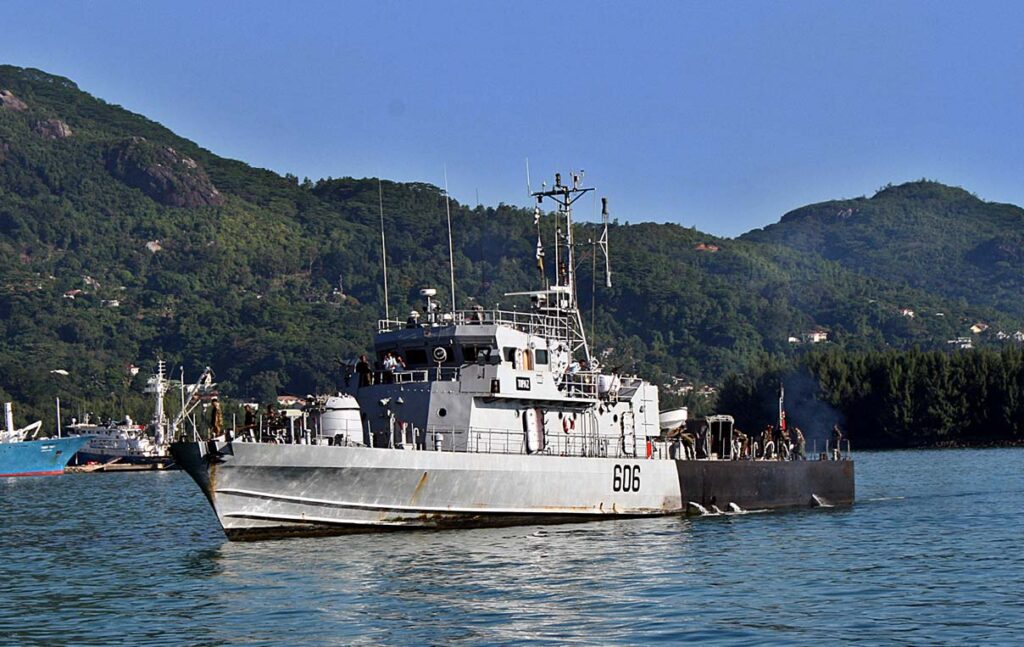
To realise meaningful gains from its blue economy, Africa must coordinate across these diplomatic arenas to create a pathway that maximises commercial potential, enhances security, and preserves environmental sustainability. Leveraging economic agreements with global investors to modernise infrastructure and enforce conservation measures will allow African nations to develop a diplomatic stance that resonates with both regional and international priorities.
Failing to strike this balance has significant risks. Without proactive economic diplomacy, Africa could become dependent on foreign powers that control critical infrastructure, eroding sovereignty and diminishing local economic benefits. Without resilient environmental policies, Africa’s marine ecosystems face potential degradation from over-exploitation, threatening both sustainability and local livelihoods. And without a strong geopolitical stance, African states risk becoming pawns in global power struggles, undermining their autonomy, and exposing them to regional instability.
On the economic front, African nations can secure their economic sovereignty and promote growth by setting clear, binding terms for foreign investment that prioritise local benefits. Environmental diplomacy, meanwhile, must align with these economic objectives, supporting resource management practices that foster conservation and resilience. Collaborative climate initiatives, such as those led by Seychelles and Mozambique, should be expanded to include regional marine conservation goals, ensuring that Africa’s ecological resources are protected even as they drive growth.
Geopolitically, Africa’s blue economy diplomacy must focus on self-determination as much as partnership. By strengthening regional unity, particularly through bodies like the AU, and engaging global powers as equal partners, African nations can assert their role in shaping the rules and norms that govern their maritime spaces. This balanced approach not only secures Africa’s blue economy for today but is also essential to safeguarding its sustainable and equitable development for future generations.
In summary, Africa’s blue economy presents a unique opportunity for the continent to lead in terms of sustainability, cooperation, and human-centred growth. The challenge will be one of careful balance – aligning foreign interests with local priorities, growth with preservation, and economic goals with the well-being of its people and ecosystems. By combining economic pragmatism with ethical environmental stewardship and a firm commitment to sovereignty, Africa can position its blue economy as a model of sustainable development that meets present needs while protecting resources for future generations.

RONAK GOPALDAS is a director at Signal Risk, an exclusively African risk advisory firm. He was previously the head of country risk at Rand Merchant Bank (RMB) for a number of years, where he managed a team who provided the firm with in-depth analysis of economic, political, security and operational dynamics across sub-Saharan Africa. He holds a BCom degree in philosophy, politics and economics (PPE) and a BCom (Hons) from the University of Cape Town (UCT). He also has an MSc in finance (economic policy) through the School of Oriental and African Studies (SOAS) in London.[

